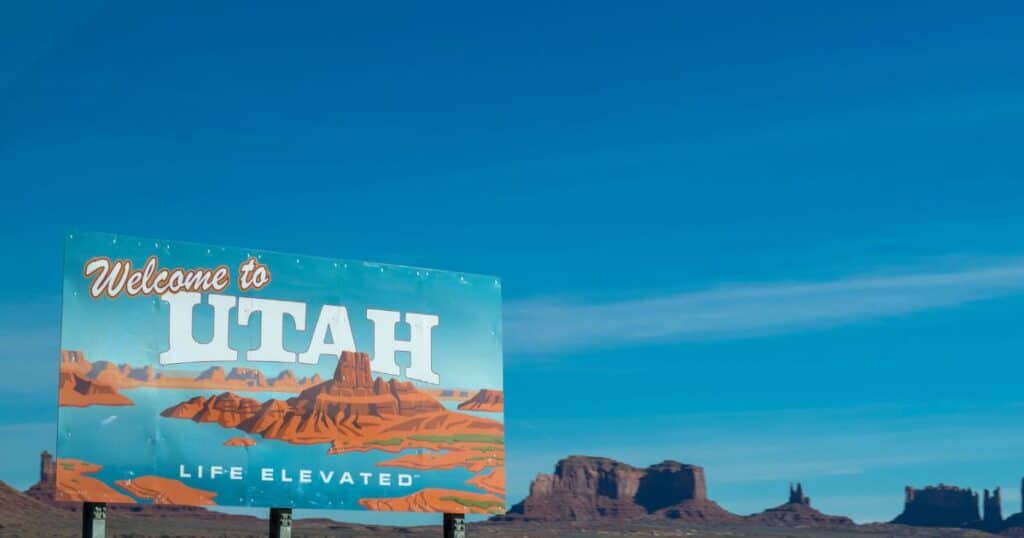Utah is making waves in the field of psychedelic-assisted therapy, marking a significant move in both medical and legal sectors. With its Governor Spencer Cox opting not to veto legislation, Utah is set to create a new psychedelics pilot program that allows the use of psilocybin and MDMA within select healthcare systems.
This surprising move, both considering the conservative nature of Utah’s political landscape and the federal scheduling of these substances as illegal, represents a shift in the discourse surrounding mental health treatment. The pilot program, set to begin this spring, presents an alternative therapeutic trajectory that has thus far shown promising outcomes for a range of mental health challenges—spanning from treatment-resistant depression to post-traumatic stress disorder (PTSD).
The bipartisan advancement of this bill indicates broader recognition among legislators that the status quo is no longer tenable in the face of an escalating mental health crisis. It also suggests a growing acknowledgment that psychedelic research, in recent years, is compellingly steering the conversation on therapeutic innovation.

A Psychedelic Shift in Utah’s Treatment Landscape
In a move that has captured attention despite its understated announcement, Governor Cox allowed Senate Bill 266 to pass without his signature as first reported by The Salt Lake Tribune. This legislation, set to become effective on May 1st, 2024, establishes a pilot program for the administration of psilocybin and MDMA within two of Utah’s most prominent healthcare institutions—Intermountain and the University of Utah Health.
Cox citied “overwhelming legislative support” for his reasoning for allowing SB 266 to pass without his signature.
“I am generally supportive of scientific efforts to discover the benefits of new substances that can relieve suffering,” he said “However, we have a task force that was set up specifically to advise the Legislature on the best ways to study Psilocybin and I’m disappointed that their input was ignored.”
The bill’s proponents, Sen. Kirk Cullimore and House Speaker Pro Tempore James Dunnigan, framed the legislation as a response to the state’s stark mental health statistics, which include Utah ranking seventh in the nation for adults with depression and suicide as the leading cause of death for young Utahns. They argue that the time for inaction has passed, and the evidence supporting the potential of psychedelics in mental health treatment is now too robust to deny patients a potentially life-changing option for relief.
The bill, however, imposes stringent regulations. Notably more restrictive than those in states like Oregon and Colorado, it requires patients to be at least 18 years old and mandates treatment in an approved medical facility. In Utah’s initial three-year pilot, the legislation prohibits the use of psychedelics for minors.
Building Bridges Between Research, Regulation, and Treatment
Utah’s establishment of this type of pilot program not only signifies a nod to the mounting body of scientific evidence in support of psychedelic-assisted therapy but also highlights a stride towards bridging the gap between research and clinical application.
By confining the program to Phase 3 clinical trials, encompassing severe conditions like treatment-resistant depression and PTSD, the state is erecting a framework that respects the progressive, albeit nascent, strides being made in the field while avoiding perceived risks linked to less regulated usage.
The hospitals in the program are expected to be diligent sentinels, carefully monitoring patient outcomes, adverse effects, and overall effectiveness and safety. This data will be shared for review by July 1, 2026, with the Health and Human Services Interim Committee, playing a crucial role in shaping the program’s future direction.
Navigating the Regulatory Labyrinth
Even as Utah takes the pioneering leap, the federal status of psilocybin and MDMA remains unchanged as Schedule I drugs under the Controlled Substances Act (CSA). This classification brings not just legal restrictions but also serves as a stinging indictment on the lack of federal recognition of their therapeutic potential. The collaboration between state and federal legal paradigms in harmonizing regulatory avenues for their use is a test case that Utah has boldly embarked upon.
This discrepancy between state and federal law raises fundamental questions about regulatory coherence and the extent to which states are empowered to chart their paths in the era-defining domain of psychedelic therapy. It is a legal grey area that underscores the complex interplay between states’ rights and federal authority in the milieu of healthcare.

Despite the stringent regulations encapsulated within Utah’s psychedelic pilot program bill, its passage unequivocally marks a progressive stride forward for the realm of psychedelic-assisted therapy. Particularly noteworthy is the context of Utah’s conservative landscape, where such a bill’s approval underscores a significant, if cautious, openness to innovative mental health treatments. This development could potentially serve as a beacon for other similarly conservative states, illuminating the path toward acknowledging and exploring the therapeutic benefits of psychedelics.
Furthermore, the draft guidance issued by the FDA for researchers investigating the therapeutic potential of psychedelic drugs is a testament to a shifting paradigm at the national level. This document not only legitimizes the scientific inquiry into psychedelics but also establishes a structured framework to ensure the safety and efficacy of such treatments. It’s a move that harmonizes with Utah’s pioneering legislation, reinforcing the notion that rigorous, scientifically backed exploration of psychedelics can coexist with stringent regulatory oversight.
In essence, Utah’s bold legislative initiative, coupled with the FDA’s proactive stance, suggests a readiness within the United States to reconsider and recalibrate its approach to mental health treatment, and we are all here for it.
The post Utah Psychedelics Program To Become Law Without Governor Signature appeared first on BEARD BROS PHARMS.